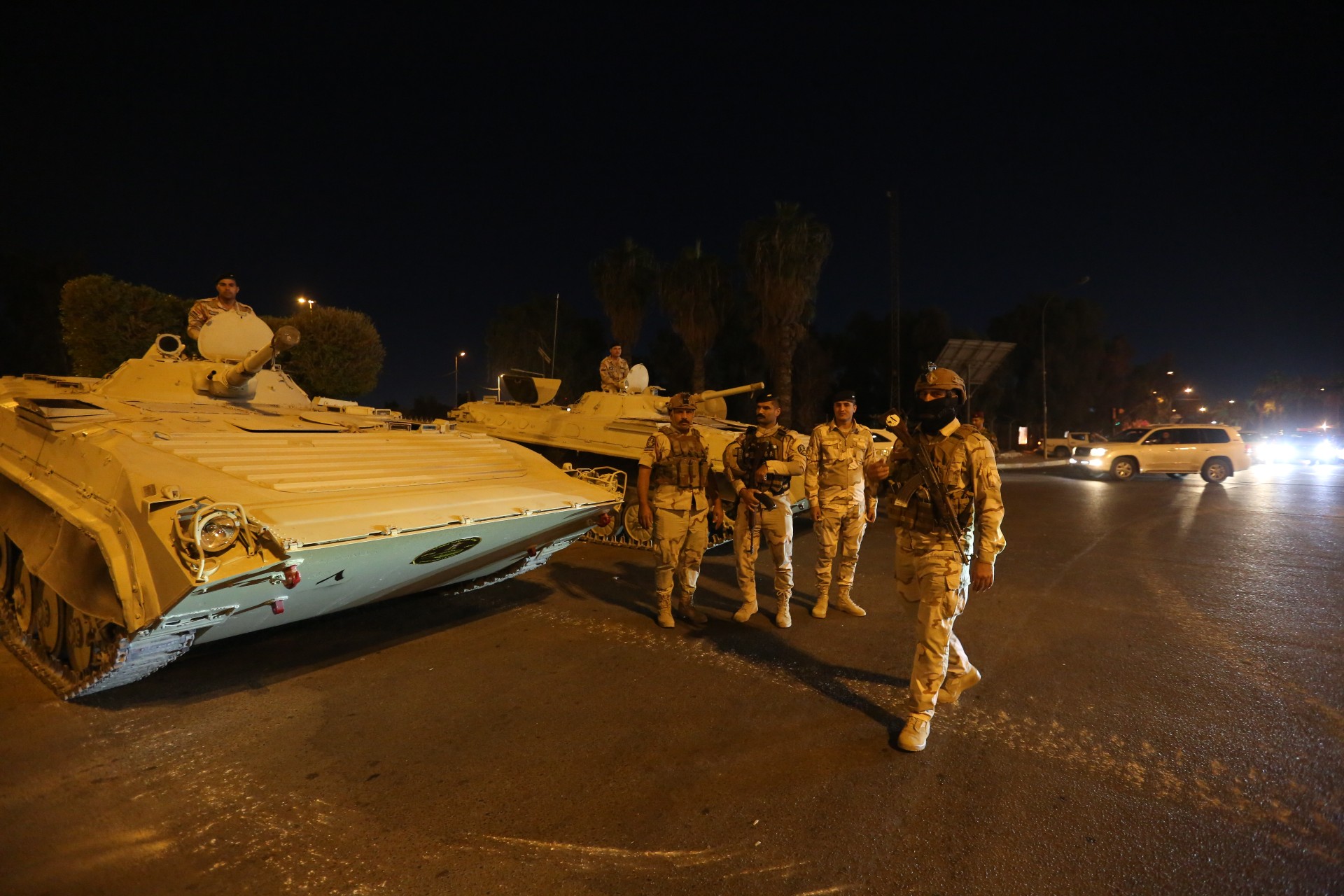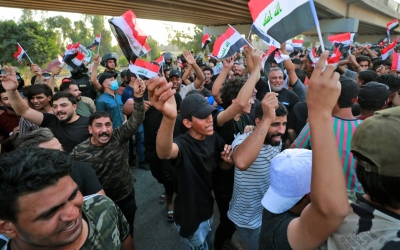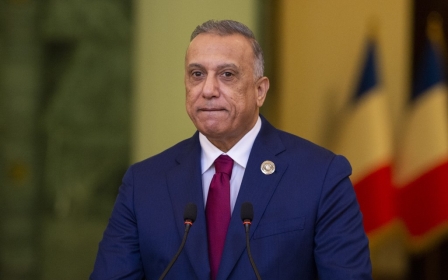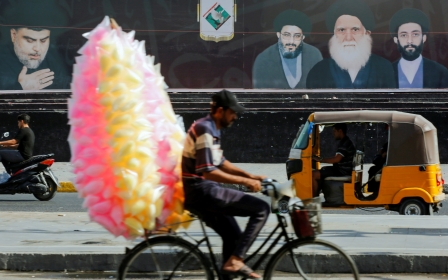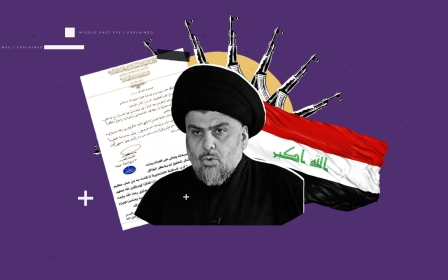Iraq: Iran-backed factions 'will pay the price' for drone attack on Kadhimi
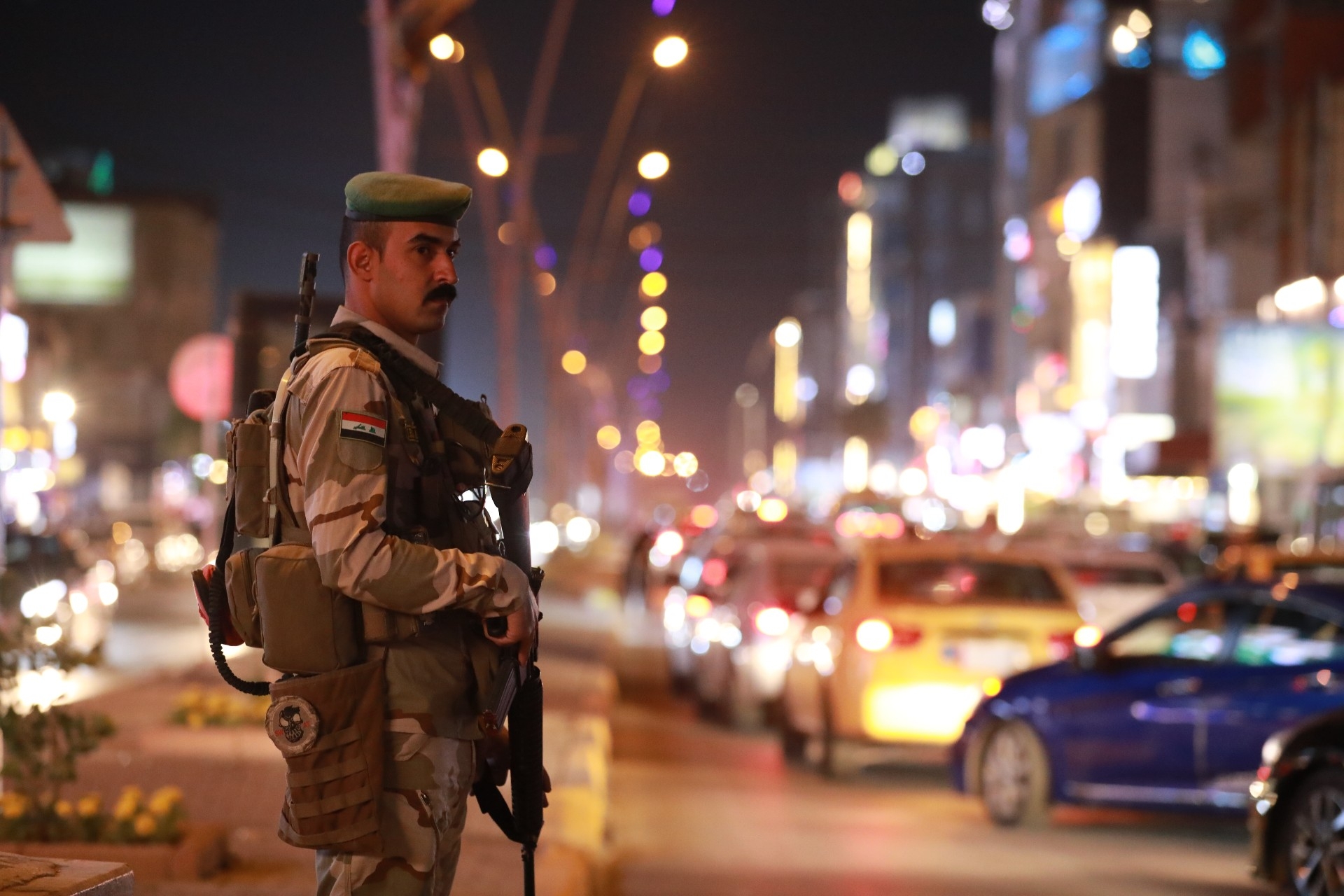
The apparent attempt to assassinate Iraqi Prime Minister Mustafa al-Kadhimi has been labelled by politicians, armed groups commanders and observers as a “stupid and uncalculated” operation that has caused great harm to the Iran-backed Shia factions.
Early Sunday morning, three drones loaded with missiles targeted Kadhimi’s residence inside Baghdad’s fortified Green Zone, Iraqi security authorities said.
Two were shot down by Iraqi troops before reaching the target, while the third struck the prime minister’s house, causing material damage and slightly wounding some of his guards.
Most security and political leaders close to Kadhimi whom Middle East Eye spoke to said that Kadhimi was not wounded, as some media had reported, and that he was not at his residence at the time of the attack. For a number of weeks he had been using an alternative headquarters outside the Green Zone, they said.
'Kadhimi has won great local and international sympathy, while the armed factions are now on the verge of losing their entire political future'
- Prominent Shia leader close to Iran
Immediately after the strike, Iraqi authorities put the security forces on high alert and deployed more special forces and anti-terror troops in the vicinity of the Green Zone and nearby neighbourhoods.
New MEE newsletter: Jerusalem Dispatch
Sign up to get the latest insights and analysis on Israel-Palestine, alongside Turkey Unpacked and other MEE newsletters
Meanwhile, warplanes have been constantly deployed in the skies.
No armed faction has claimed responsibility. At the weekend, Asaib Ahl al-Haq, a powerful Shia paramilitary, vowed to “punish” Kadhimi in response to the killing of one of its commanders on Friday evening. The commander was shot dead during a stand-off between security forces and Asaib supporters protesting against the results of October’s election, in which the armed groups and their allies performed poorly.
Regardless of who is responsible, the recriminations will be felt most heavily by the Iran-backed Shia factions, who will “pay the price”, politicians, factions’ leaders and military officials told MEE.
"The operation was stupid and uncalculated, and it did not benefit anyone. Neither Iraq, nor the factions, nor Iran. An absurd operation that complicated the scene more than it was," a prominent Shia leader close to Iran told MEE.
"It is a big mistake that everyone [the Iranian-backed factions] will pay for. They [the perpetrators] wanted to take revenge on Kadhimi, but the result was the embarrassment of the faction leaders and deepening their isolation politically and socially,” he added.
"Kadhimi has won great local and international sympathy, while they [the armed factions] are now on the verge of losing their entire political future."
Mutual denials and accusations
The vast majority of Iraqi political forces and leaders condemned the attack, labelling it a “precedent” that “crossed the red lines” drawn between Iraq’s competing camps.
Nouri al-Maliki, the former Iraqi prime minister who has been cultivating strong ties with the Iran-backed factions since they were humiliated in last month’s parliamentary elections, issued a strong rebuke and called for differences to be addressed “with wisdom and discretion, away from violence”.
So, too, did a grouping of the most prominent Shia armed factions, the Coordination Committee of the Iraqi Resistance Factions, which labelled the attack "a targeting of the Iraqi state" but also claimed it was fabricated by its enemies in an attempt to conflate the raid with the killing of its supporters in the Friday protest.
"Creating an incident like this will not prevent us from insisting on punishing the perpetrators, especially those involved in the bloodshed of innocent peaceful demonstrators," the statement read.
"We warn that there is a series that includes more of these actions that aim to confuse the Iraqi street and accept the rigged election results."
Qais al-Khazali, the leader of Asaib Ahl al-Haq, said if it was proven Kadhimi was targeted, then people should remember his previous warnings that parties close to the intelligence services were plotting such attacks to pin on the armed factions.
Meanwhile, Abu Ali al-Askari, commander of the Kataib Hezbollah, the Shia armed faction most hostile to Kadhimi, flippantly claimed none of the factions would bother wasting a drone on Kadhimi’s house.
Kadhimi vows to respond
The prime minister himself appeared on screen less than two hours after the attack. Portraying the image of a calm statesman, he nonetheless sported a bandage on his left wrist - which he denied was linked to the attack. He avoided talking about his whereabouts when the drone struck.
From then on, he was relentlessly busy, holding a series of security meetings before the sun had even risen.
After the Ministerial Council for National Security met, it issued a statement saying: “Whoever thinks that the hand of our forces cannot reach him is delusional. No one is above the law.”
It was the “clearest and harshest” statement ever issued against the armed factions, security officials and observers told MEE.
"They [the faction leaders] are confused and disjointed, and all indications confirm that the operation was not done with everyone's knowledge or coordination between them. So Kadhimi now has a great opportunity to deal a painful blow to them," a prominent Shia leader told MEE.
Kadhimi and the armed factions “are still playing according to the laws of hit and run”, he said. “Strike a blow, then the two sides return to their previous positions.
"Neither side will resort to a comprehensive or large-scale confrontation now,” he added. “This is still postponed until further notice."
Middle East Eye delivers independent and unrivalled coverage and analysis of the Middle East, North Africa and beyond. To learn more about republishing this content and the associated fees, please fill out this form. More about MEE can be found here.


